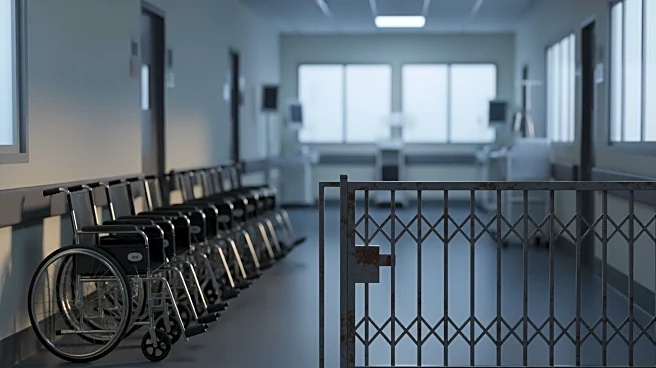What's Happening?
Israeli authorities are planning to deport at least 89 Palestinian patients and their companions from Jerusalem back to Gaza. These individuals were evacuated for medical treatment before the onset of
the war in Gaza two years ago. The World Health Organization (WHO) reports that 94% of hospitals in Gaza have been damaged or destroyed, creating a dire situation for returning patients. While most patients have agreed to return, some are being sent against their will. The Israeli military has requested the WHO to facilitate the transfer of these patients early next week.
Why It's Important?
The deportation of sick patients back to Gaza highlights the ongoing humanitarian crisis in the region. With the majority of hospitals in Gaza damaged, the return of these patients could exacerbate their health conditions and strain the limited medical resources available. This move may also impact international relations, as humanitarian organizations and foreign governments may respond to the perceived neglect of medical needs in conflict zones. The situation underscores the broader challenges faced by displaced populations in accessing healthcare during conflicts.
What's Next?
The WHO's involvement in facilitating the transfer suggests potential international scrutiny and pressure on Israel regarding its handling of humanitarian issues. The deportation could lead to increased advocacy from human rights organizations and calls for more robust international intervention to ensure adequate healthcare for displaced populations. The situation may also prompt discussions on the need for rebuilding Gaza's healthcare infrastructure to accommodate returning patients.
Beyond the Headlines
The deportation of patients from Jerusalem to Gaza raises ethical concerns about the treatment of vulnerable populations in conflict zones. It highlights the complex interplay between military decisions and humanitarian needs, potentially influencing future policies on the protection of civilians during conflicts. The situation may also lead to increased dialogue on the responsibilities of occupying powers in ensuring the welfare of affected populations.









